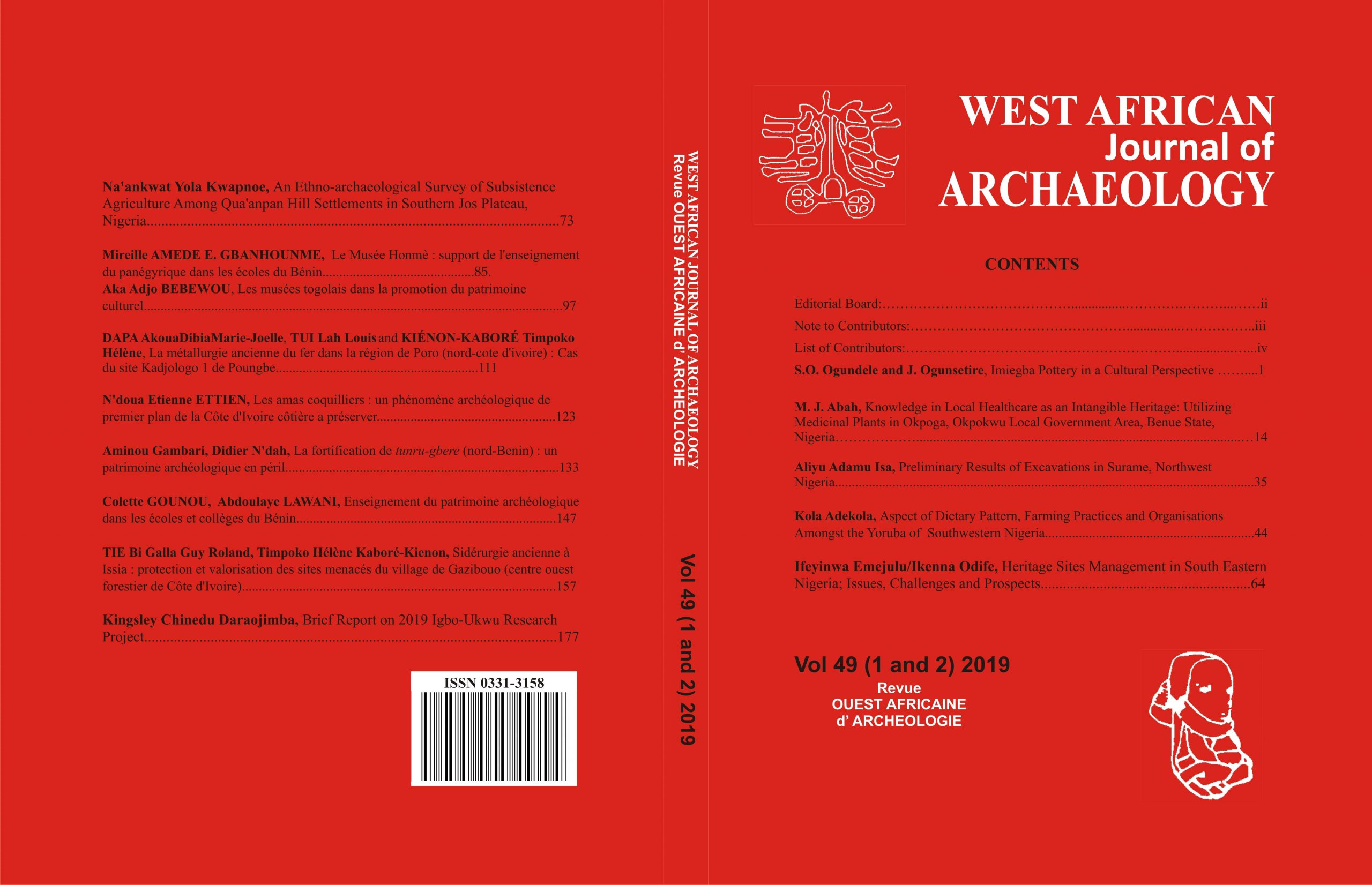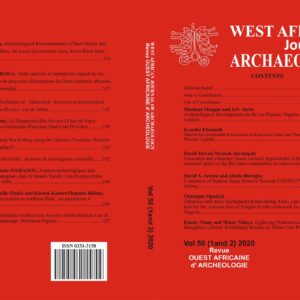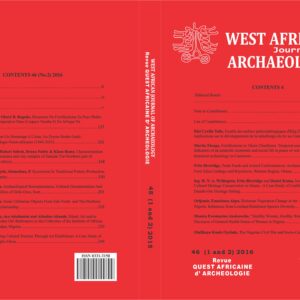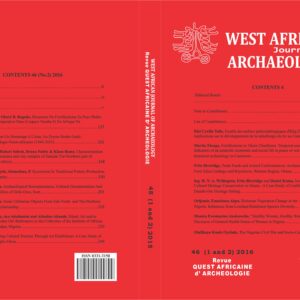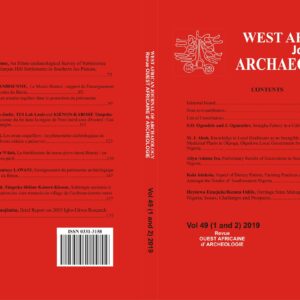-
WAJA VOLUME 46
$50.00
2019 Igbo-Ukwu Research Project
Short Notes on the 2019 Igbo-Ukwu Research Project
Kingsley Chinedu Daraojimba
Department of Archaeology and Tourism
University of Nigeria. Nsukka
[email protected]
Introduction
Igbo-Ukwu is a world renowned archaeological site which lies about 40 kilometres east of the
lower Niger River in Anambra State, Nigeria (Fig. 1). The Igbo-Ukwu Archaeological and
Heritage Project began its first phase in November 2019. The revisit to the site was the first
after six decades the original excavations were conducted by Professor Thurstan Shaw.
Between 1959 and 1964, Shaw’s excavations in the three sites (Igbo Richard, Igbo Isaiah and
Igbo Jonah) revealed a royal burial chamber and large collection of intricately decorated
pottery, bone and ivory, objects of copper, iron and elaborate bronze art, fabric, carnelian, stone
and coloured glass beads dated over 1000 years old (Shaw 1970; 1977). In response to poor
attention to the renowned Igbo-Ukwu sites, a community-engaged archaeology project was
conceptualised by Shaw’s widow, Pamela Jane Smith, in consultation with compound owners,
the Traditional Ruler and the Anozie family.
Community archaeology though far from new in Africa, where archaeologists such as Thurstan
Shaw and Merrick Posnansky have practised it (Schmidt 2014), many researchers still poorly
engage local and indigenous communities in their research approach (Pikirayi and Schmidt
2016). There are several hindrances responsible for this poor community-researcher
engagement. Some of such hindrances among others include mistrust arising from damaging
experiences under colonial rule, looting and sale of cultural items and non-obedience to the
culturally or socially prohibited rules guiding the preservation of cultural heritage (Aleru and
Adekola 2016). Community archaeology is archaeology of the people, for the people and by
the people. In other words, it is an archaeological activity that is focused on drawing a
connection between communities and archaeological remains for the purose of benefitting the
local community and preservation of their archaeological heritage (Lewis, 2018). Since
community archaeology was more about what the community needs and not what the
archaeologist thinks the community needs (Smith et al. 2020), this ten day inclusive community
approach was targeted at handing over, at least, partial control of the project to the local
community. This approach was targeted at promoting indigenous views in interpretations and
to empower communities to benefit from and participate in developing their own
archaeological sites. The approach is important as the first phase of the efforts to launch a long-
term archaeological project in Igbo-Ukwu. This paper briefly describes the first phase of the
project and highlights the possibilities in the area for future archaeological research.

